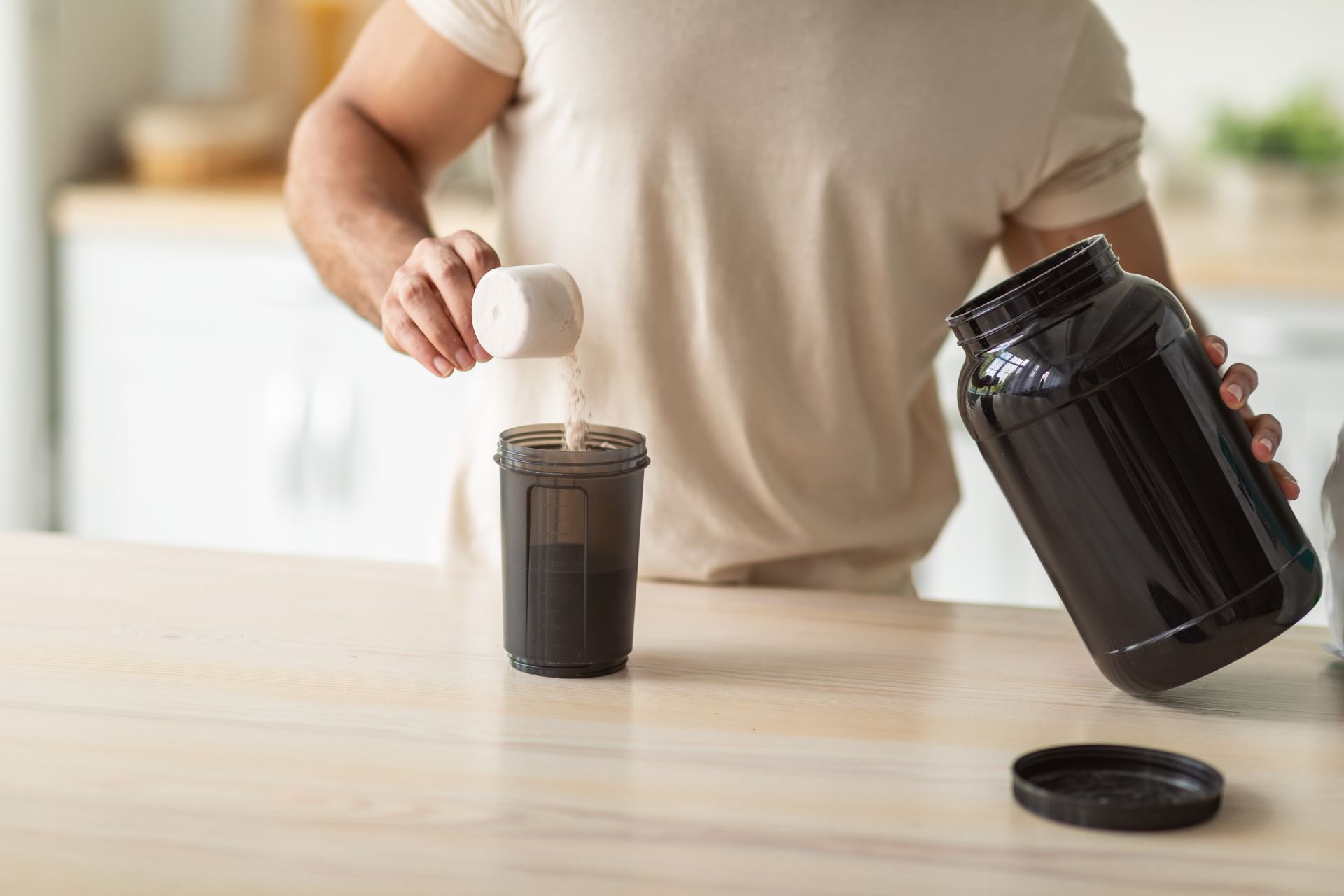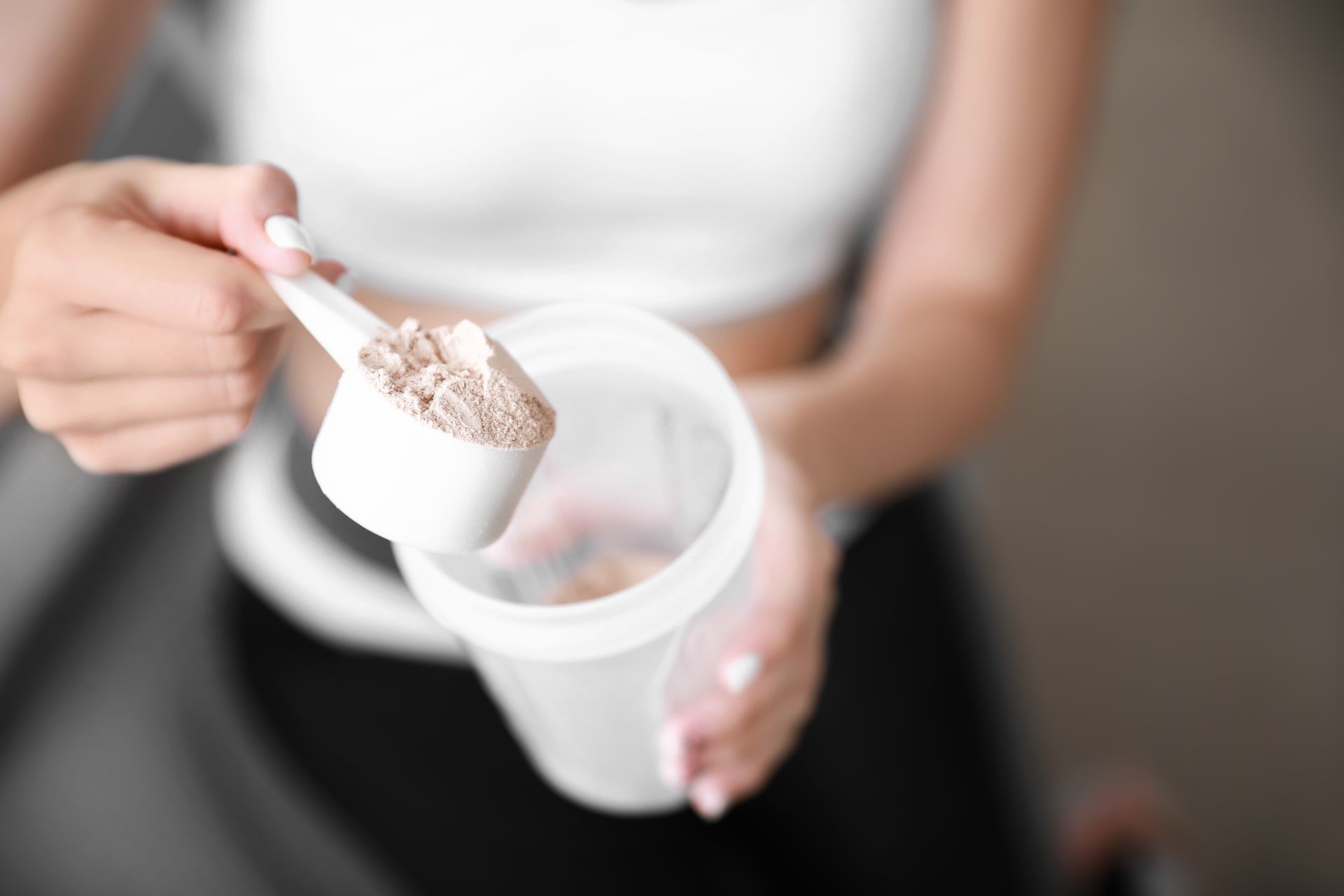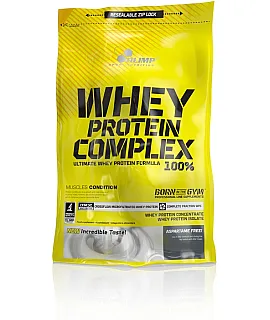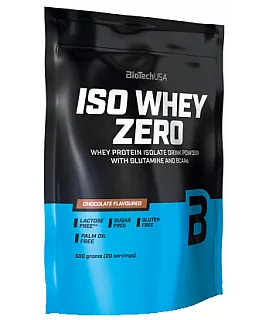Protein isolate - everything about it

Protein nutritional supplements are among the products eagerly sought after by both competitive and recreational athletes, and even more so to increase muscle mass. One of the most popular types of protein nutrients among athletes is whey protein isolate. Let's find out what protein isolate is and its benefits.
- What is a protein isolate?
- How is protein isolate made?
- Protein isolate - characteristics
- Protein isolate - what are the benefits of its use?
- Protein isolate - for whom?
- Protein isolate - contraindications
What is a protein isolate?
Whey Protein Isolate (WPI) is a powdered product that has a very high protein content of 85-90% and at the same time a low content of carbohydrates (usually up to 1%) and fats (usually up to 0.5%). Whey protein isolate-based protein supplement is more expensive than whey protein concentrate (WPC), due to the higher protein content of the product. Whey protein isolate, in addition to appearing as a powdered protein supplement, is also often added to such sports nutrition products as protein bars, desserts and shakes that are ready to consume when poured over water or milk. In addition, in recent years an increasing number of food manufacturers have been enriching their food products with whey protein isolate, including: breakfast cereals, yogurts, dairy desserts and protein bars.
How is protein isolate made?
Whey protein isolate is obtained by concentrating and purifying whey protein concentrate to reduce the carbohydrate (lactose) and milk fat content of whey. The process of concentrating and purifying whey protein concentrate is carried out using membrane separation or ion exchange methods. Whey protein isolate is considered the product with the highest purity and concentration of protein, as it contains at least 85% protein and usually less than 1% lactose and fats.
Protein isolate - characteristics
Whey protein isolate is characterized by its high content of essential amino acids, including branched-chain amino acids (BCAAs), which include leucine, isoleucine and valine. In addition, whey protein isolate is a good source of calcium and potassium. One serving (30 g) of whey protein isolate-based protein supplement provides an average of 26 g of protein, 0.6 g of carbohydrates (milk sugar) and 0.2 g of fat, and about 110 kcal. Protein supplement based on whey protein isolate is characterized by high biological value, high digestibility and easy assimilation. Whey protein isolate is an excellent option for recreational and competitive athletes due to its high leucine content and rapid kinetics of digestion and absorption of branched-chain amino acids.
Protein isolate - what are the benefits of its use?
Protein nutrients (including whey protein isolate) have been classified by the Australian Institute of Sport in category A, which includes only substances with well-documented effects in sports. The research clearly shows that frequent use of a whey protein isolate-based protein supplement leads to an increase in muscle mass and strength, and even more so in those who do regular strength training. Whey protein isolate effectively stimulates skeletal muscle protein synthesis (MPS), mainly due to its high content of leucine and other essential amino acids. Previous studies have shown that the regular inclusion of a whey protein isolate-based protein supplement in the diet has a positive effect on body composition, stimulating an increase in lean body mass while reducing fat mass, waist circumference and BMI, especially in people who regularly do strength training and follow a well-balanced diet for a long time. In addition, the use of whey protein isolate intensifies anabolic processes in the human body and significantly accelerates the rate of post-workout recovery after intensive strength training. In addition, supplementing the diet with a protein supplement based on whey protein isolate can lower blood glucose levels, suppress appetite and increase the feeling of satiety, as well as counteract the onset of sarcopenia (loss of skeletal muscle mass, strength and power with age) and alleviate the symptoms of cancer cachexia.
Protein isolate - for whom?
Whey protein isolate will work well for anyone who regularly trains at the gym to develop muscle mass and strength, and who has an increased need for protein. Whey protein isolate can also be successfully taken by people who want to lose weight and maintain high satiety between meals. In addition, because whey protein isolate contains a small amount of lactose, it is a safe product for anyone with lactose intolerance and gastrointestinal conditions such as irritable bowel syndrome (IBS), small intestine bacterial overgrowth syndrome (SIBO) and inflammatory bowel disease (Crohn's disease and ulcerative colitis). The use of a whey protein isolate-based protein supplement can also be extremely helpful in skin regeneration, tissue reconstruction and wound healing after surgery, as well as in cases of protein-calorie malnutrition associated with chewing and swallowing disorders and lack of appetite. Whey protein isolate can be used in the form of a classic shake after weight training, but it will also be perfect as an addition to morning oatmeal or porridge and a fruit milkshake.
Protein isolate - contraindications
The main contraindication to the use of whey protein isolate is an established allergy to cow's milk proteins. In addition, regular use of a whey protein isolate-based protein supplement can aggravate acne lesions on the face and torso in some people. As an alternative to whey protein isolate, whey protein hydrolysate (WPH), beef protein isolate, soy protein isolate or pea protein isolate can then be used.
Sources:
-
Duarte NM, Cruz AL, Silva DC, et al: Intake of whey isolate supplement and muscle mass gains in young healthy adults when combined with resistance training: a blinded randomized clinical trial (pilot study). J Sports Med Phys Fitness. 2020 Jan;60(1):75-84.
-
Cereda E, Turri A, Klersy C, et al: Whey protein isolate supplementation improves body composition, muscle strength, and treatment tolerance in malnourished advanced cancer patients undergoing chemotherapy. Cancer Med. 2019 Nov;8(16):6923-6932.
-
Hoffman JR, Falvo MJ: Protein - Which is Best? J Sports Sci Med. 2004 Sep 1;3(3):118-30.
-
Lynch HM, Buman MP, Dickinson JM, et al: No Significant Differences in Muscle Growth and Strength Development When Consuming Soy and Whey Protein Supplements Matched for Leucine Following a 12 Week Resistance Training Program in Men and Women: A Randomized Trial. Int J Environ Res Public Health. 2020 May 29;17(11):3871.
-
Banaszek A, Bumm TGP, Nowotny B, et al: The Effects of Whey vs. Pea Protein on Physical Adaptations Following 8-Weeks of High-Intensity Functional Training (HIFT): A Pilot Study. Sports (Basel). 2019 Jan 4;7(1):12.
 ⮜ Previous article
⮜ Previous article
How does a protein supplement work for fat reduction?
 Next article ⮞
Next article ⮞

